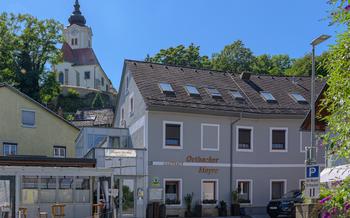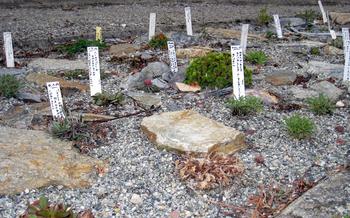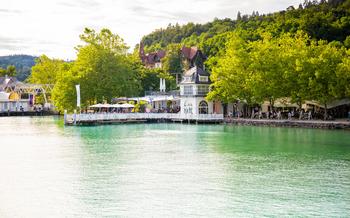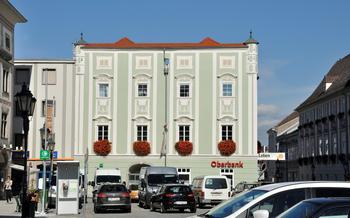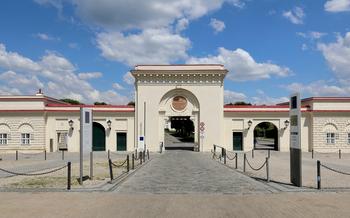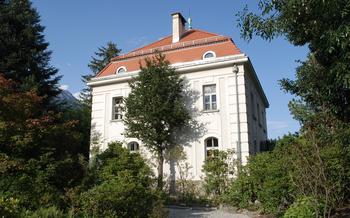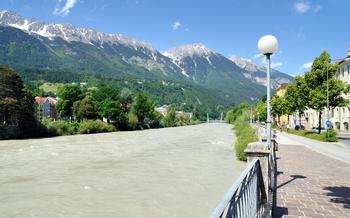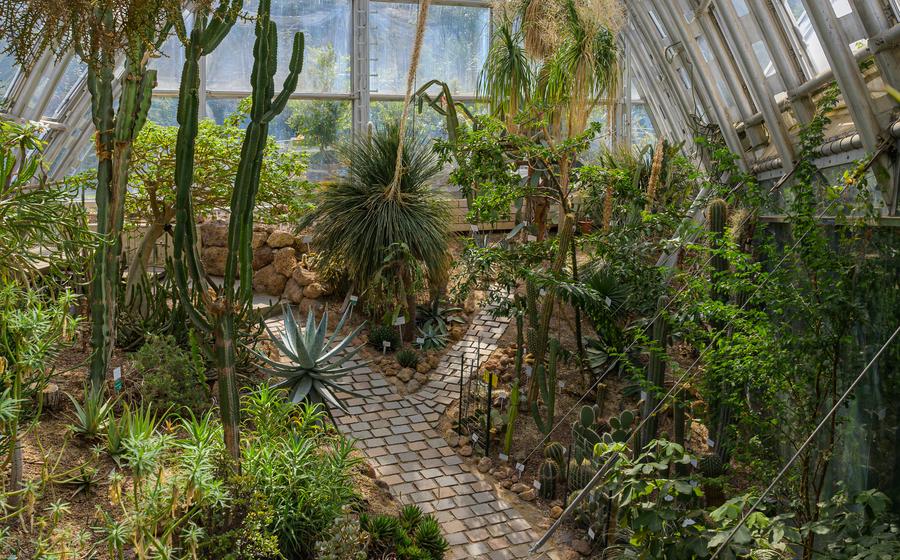
Botanical Garden of the University of Graz
- Graz Botanical Garden: A Haven of Biodiversity
- Educational Programs and Workshops
- Garden Café and Gift Shop
- Seasonal Events and Exhibitions
- Sustainability and Conservation Efforts
- Accessibility and Visitor Information
- Photography and Social Media
- Research and Collaboration
- Volunteering Opportunities
- Guided Tours and Thematic Workshops
- Horticultural Therapy and Well-being
- Insider Tip: Hidden Gems and Secret Spots
Graz Botanical Garden: A Haven of Biodiversity
The Botanical Garden of the University of Graz, nestled in the heart of the city, is a verdant oasis that showcases the wonders of the plant kingdom. Founded in 1803 by Archduke Johann, the garden has a rich history and is renowned for its diverse collection of plants, representing various ecosystems from around the world.
As a leading botanical institution, the garden plays a vital role in scientific research, education, and conservation. Its extensive collections serve as a valuable resource for researchers, students, and nature enthusiasts alike. With over 10,000 plant species, the garden offers a microcosm of the Earth's botanical diversity, making it a must-visit destination for anyone interested in the natural world.
Educational Programs and Workshops
The Graz Botanical Garden offers a wide range of educational programs and workshops throughout the year, catering to visitors of all ages and interests. These programs provide an excellent opportunity to deepen one's knowledge of plants, gardening, and the natural world.
Courses and Lectures: The garden offers a variety of courses and lectures on various topics related to botany, horticulture, and environmental conservation. These courses are taught by experienced instructors and researchers affiliated with the University of Graz. Participants can choose from courses on plant identification, gardening techniques, sustainable landscaping, and more.
Hands-On Workshops: Interactive workshops are conducted regularly, allowing participants to engage in hands-on activities such as plant propagation, seed saving, and terrarium building. These workshops are perfect for those who want to learn practical gardening skills and get their hands dirty.
Programs for Children and Families: The garden organizes special programs and workshops designed for children and families. These programs aim to instill a love for nature and plants in young minds through fun and interactive activities. Children can participate in plant-themed crafts, storytelling sessions, and guided tours tailored to their level of understanding.
Tailored Programs for Groups: The garden also offers customized educational programs for groups, such as school classes, corporate teams, and senior citizen groups. These programs can be tailored to specific interests and requirements, ensuring a meaningful and enriching experience for all participants.
Garden Café and Gift Shop
After a refreshing stroll through the Botanical Garden, visitors can indulge in delicious refreshments and snacks at the garden café. Located in a charming setting amidst the greenery, the café offers a variety of tempting treats to satisfy every palate. From freshly baked pastries and aromatic coffee to refreshing beverages and ice cream, there's something for everyone to enjoy.
The garden also boasts a well-stocked gift shop, where visitors can find a treasure trove of unique souvenirs and plant-related gifts. From beautifully illustrated books on botany and gardening to handcrafted pottery and jewelry inspired by nature, the gift shop offers a delightful selection of items that celebrate the beauty and diversity of the plant kingdom.
Supporting the garden's initiatives and research endeavors is as simple as making a purchase at the gift shop. By choosing to buy souvenirs and gifts from the garden, visitors directly contribute to the preservation and conservation of this remarkable living museum.
Seasonal Events and Exhibitions
The Graz Botanical Garden comes alive with a variety of events and exhibitions throughout the year, offering visitors unique opportunities to experience the garden's diverse plant collections and learn about different aspects of botany. During the spring, the garden bursts into color with the spectacular bloom of tulips, daffodils, and magnolias, creating a vibrant and fragrant display. This period is celebrated with special events such as guided tours focused on spring flora and workshops on flower arranging.
As summer approaches, the garden hosts events centered around sustainability and conservation. Visitors can participate in workshops on composting, rainwater harvesting, and organic gardening, gaining valuable insights into eco-friendly practices. The garden also organizes family-friendly events, such as nature walks and bug hunts, to engage children in the wonders of the natural world.
In autumn, the garden transforms into a sea of golden hues as the leaves change color. This season is marked by events highlighting the beauty of the changing foliage, including guided tours that explore the garden's diverse tree species and workshops on leaf identification and pressing. Visitors can also enjoy the annual pumpkin festival, where they can carve their own pumpkins, participate in pumpkin-themed games, and savor delicious pumpkin-based treats.
Winter brings its own charm to the Botanical Garden. The glasshouses and conservatories provide a warm and inviting refuge from the cold, allowing visitors to explore the garden's tropical and subtropical collections. Special exhibitions on winter plants and holiday-themed events, such as Christmas markets and wreath-making workshops, create a festive atmosphere during this time of the year.
Sustainability and Conservation Efforts
The Graz Botanical Garden is committed to sustainable practices and conservation efforts, recognizing the importance of preserving biodiversity and protecting the environment. The garden actively implements various initiatives to minimize its ecological impact and contribute to the conservation of plant species.
One significant effort is the garden's focus on reducing water consumption. Efficient irrigation systems and rainwater harvesting techniques are employed to conserve water resources. Additionally, the garden promotes the use of native and drought-tolerant plants that are adapted to the local climate, requiring less water and maintenance.
The garden also plays a role in the conservation of endangered plant species. It participates in various conservation programs and collaborates with other botanical institutions to propagate and protect rare and threatened plants. By maintaining a diverse collection of plant species, the garden serves as a valuable resource for research and conservation efforts.
To further its sustainability mission, the garden encourages visitors to adopt responsible practices. Educational signage throughout the garden raises awareness about the importance of biodiversity and conservation. Visitors are encouraged to recycle, compost, and minimize their environmental impact while exploring the garden.
By integrating sustainability into its operations and engaging visitors in conservation efforts, the Graz Botanical Garden demonstrates its commitment to protecting the natural world and preserving the beauty and diversity of its plant collections for future generations.
Accessibility and Visitor Information
The Graz Botanical Garden extends a warm welcome to visitors from all walks of life. Open throughout the year, it offers varying hours depending on the season. During the summer months (April to October), the garden is open from 9:00 AM to 7:00 PM, while in the winter months (November to March), it remains open from 9:00 AM to 4:00 PM. Admission fees are reasonable, with discounts available for students, seniors, and families.
For those with disabilities, the garden has ensured accessibility by providing wheelchair-accessible paths and facilities. Visitors can navigate the garden's grounds with ease, enjoying the beauty of nature without any hindrances.
To make the most of your visit, it's advisable to plan ahead and check the garden's website for any special events or exhibitions that may be taking place during your intended visit. Detailed maps and guides are available at the garden entrance, providing valuable information about the various sections and highlights.
Whether you're a plant enthusiast, a nature lover, or simply seeking a tranquil retreat, the Graz Botanical Garden offers an enriching and memorable experience. Remember to wear comfortable shoes, bring along a camera to capture the garden's beauty, and stay hydrated, especially during the warmer months.
Photography and Social Media
Capturing the Beauty of the Botanical Garden Through Your Lens
The Botanical Garden of the University of Graz welcomes and encourages visitors to capture the beauty of its diverse plant collections through photography. Whether you're an amateur photographer or a seasoned professional, there are endless opportunities to create stunning images within the garden's picturesque landscapes.
When taking photographs, please be mindful of the garden's regulations and guidelines. Respect the plants and other visitors, and avoid using tripods or other equipment that may obstruct walkways or damage the delicate ecosystem.
Share your experiences and stunning shots with the world by tagging @BotanicalGardenGraz on Instagram and using the hashtag #GrazBotanicalGarden. Connect with a global community of nature enthusiasts and inspire others to explore the wonders of the plant kingdom.
Research and Collaboration
The Graz Botanical Garden is not just a place of beauty and inspiration; it is also a hub of scientific research and collaboration. The garden maintains partnerships with universities, research institutions, and botanical gardens worldwide, fostering knowledge exchange and advancing the field of botany.
Researchers and students have the opportunity to conduct studies and experiments within the garden's diverse ecosystems, contributing to a deeper understanding of plant biology, ecology, and conservation. The garden's extensive collections and specialized facilities provide a rich environment for scientific inquiry and discovery.
The garden's research focuses on various areas, including plant taxonomy, conservation genetics, and sustainable horticulture. Collaborations with other institutions enable interdisciplinary research projects, addressing pressing environmental challenges and contributing to the preservation of biodiversity.
Through its research initiatives, the Graz Botanical Garden plays a vital role in advancing botanical knowledge and promoting sustainable practices. Visitors to the garden can learn about ongoing research projects and the importance of scientific collaboration in preserving our planet's plant diversity.
Volunteering Opportunities
The Graz Botanical Garden welcomes passionate individuals who wish to contribute to the preservation and development of its natural wonders. Volunteering offers a unique opportunity to immerse yourself in the world of plants, gain hands-on experience in horticulture, and connect with a community of like-minded individuals.
As a volunteer, you will have the chance to engage in a variety of tasks and activities, such as:
- Assisting with plant care and maintenance, including watering, pruning, and propagation.
- Participating in educational programs and workshops, sharing your knowledge and enthusiasm with visitors.
- Helping with special events and exhibitions, contributing to the garden's outreach and engagement efforts.
- Conducting research projects, collaborating with scientists and researchers to advance botanical knowledge.
Volunteering at the Graz Botanical Garden is a rewarding experience that offers numerous benefits, including:
- The opportunity to learn from experts in the field of botany and horticulture.
- Gaining practical skills and knowledge that can be applied to your own gardening endeavors.
- Making a positive impact on the conservation and sustainability of the garden.
- Meeting new people, forming lasting friendships, and fostering a sense of community.
If you are passionate about plants, nature, and sustainability, and are looking for a meaningful way to give back to the community, volunteering at the Graz Botanical Garden is an excellent opportunity.
To inquire about volunteering opportunities, please contact the garden's administration office.
Guided Tours and Thematic Workshops
Graz Botanical Garden offers a range of guided tours, catering to diverse interests and knowledge levels. Whether you're a plant enthusiast seeking in-depth knowledge or a casual visitor looking for an informative stroll, there's a tour tailored for you. Guided tours are an excellent way to delve into the garden's rich history, discover the fascinating stories behind its plant collections, and gain insights into the latest botanical research. Thematic workshops are another highlight, providing a platform for hands-on learning and exploration. These workshops cover a wide spectrum of topics, from plant identification and propagation techniques to sustainable gardening practices. Whether you're a seasoned gardener or just starting, these workshops offer a unique opportunity to enhance your knowledge and skills while immersing yourself in the beauty of the botanical garden.
Horticultural Therapy and Well-being
The Graz Botanical Garden is not just a place of scientific research and plant conservation; it is also a haven of tranquility and well-being. The garden's serene atmosphere, coupled with the beauty and diversity of its plant life, creates a restorative environment that can positively impact mental and physical health.
Horticultural therapy, a form of therapy that utilizes gardening and plant care to promote well-being, is a key focus at the garden. The garden's staff and volunteers lead therapeutic gardening programs for individuals with various needs, including those with physical disabilities, mental health issues, and learning difficulties. These programs provide participants with opportunities to engage in horticulture activities, such as planting, weeding, and harvesting, while also promoting socialization, self-esteem, and a sense of accomplishment.
Spending time in nature, surrounded by plants, has been shown to have numerous benefits for well-being. Studies have demonstrated that exposure to green spaces can reduce stress, improve mood, and enhance cognitive function. The garden's tranquil atmosphere and the calming effects of plants provide visitors with a sanctuary where they can escape the hustle and bustle of city life and reconnect with nature.
The garden also offers a range of activities and programs designed to enhance well-being. Yoga and meditation classes are held regularly in the garden's serene surroundings, allowing participants to deepen their connection with nature while practicing mindfulness and relaxation techniques. Art therapy workshops encourage individuals to express themselves creatively through art inspired by the garden's beauty. These activities provide visitors with unique opportunities to engage with the garden on a deeper level and promote their overall well-being.
Insider Tip: Hidden Gems and Secret Spots
Beyond the main attractions, the Botanical Garden of the University of Graz holds hidden gems and secret spots waiting to be discovered. Venture off the beaten path to find a secluded bench nestled among towering trees, perfect for a moment of tranquility and reflection. Keep an eye out for the rock garden, a miniature landscape featuring a diverse array of alpine plants. Photography enthusiasts will delight in capturing the vibrant colors and intricate details of the carnivorous plant collection. For those seeking a unique perspective, climb the spiral staircase of the observation tower to enjoy panoramic views of the garden and the surrounding city. Embrace the spirit of exploration and uncover the hidden treasures that make this botanical paradise truly special.

